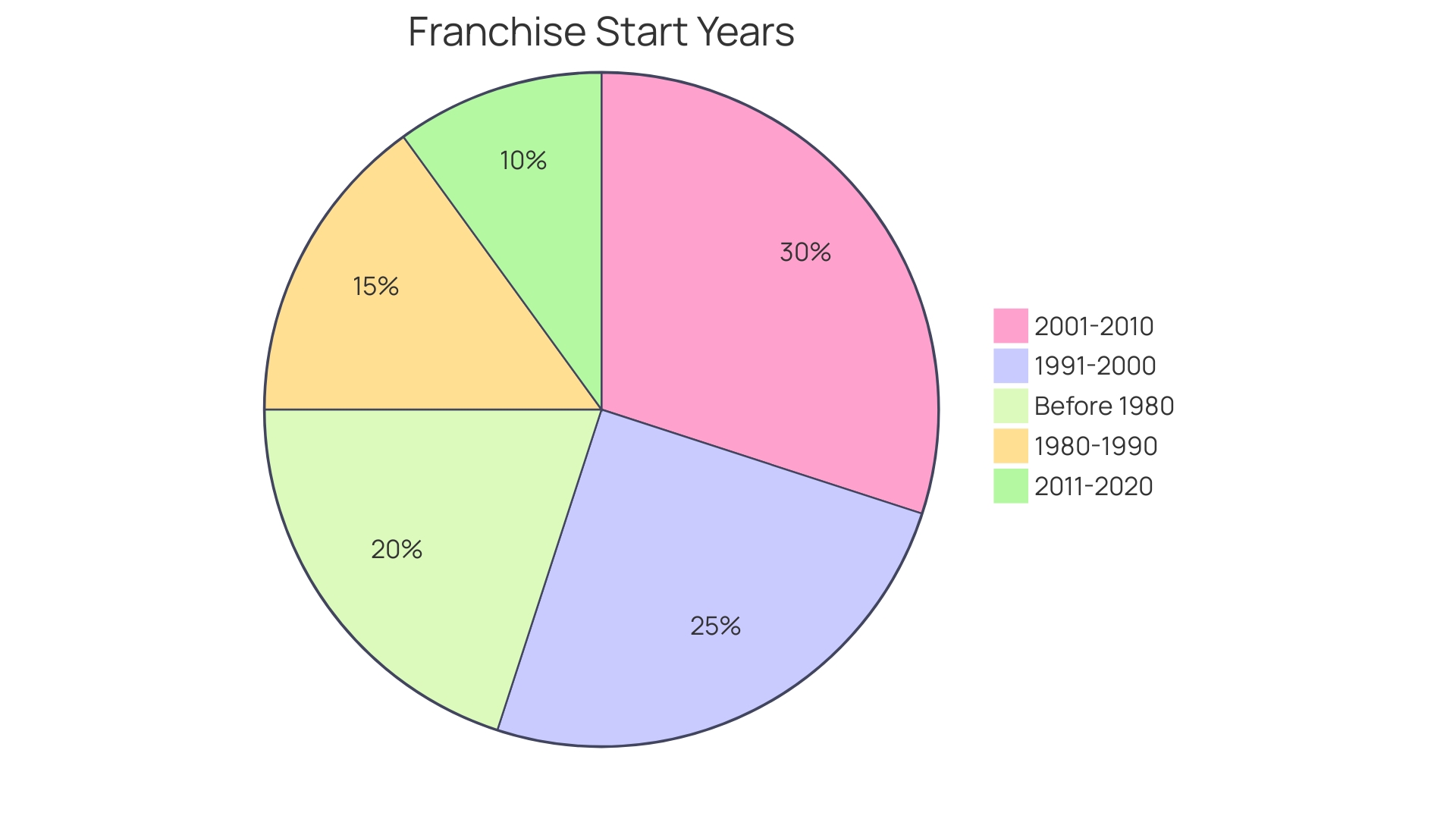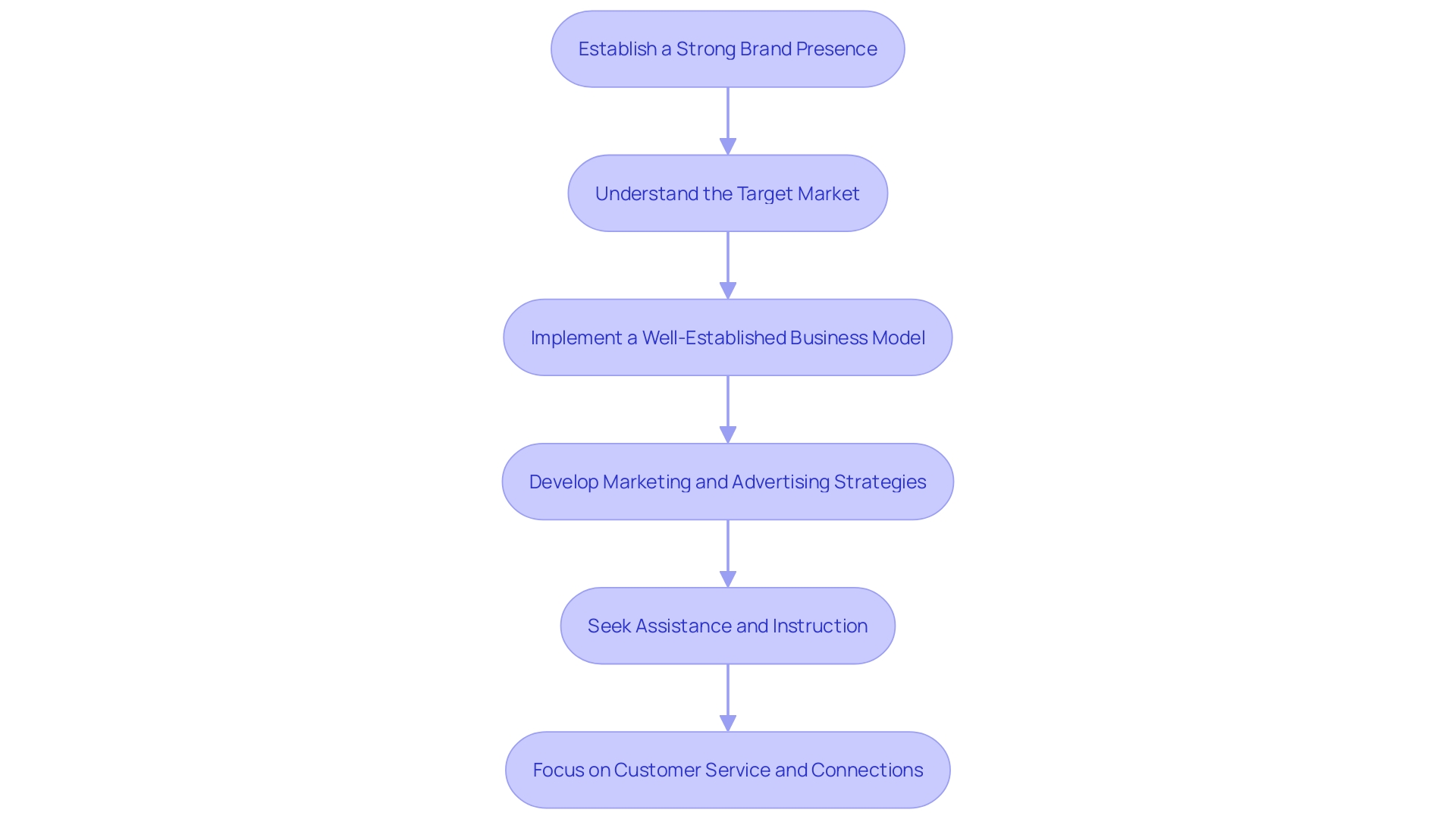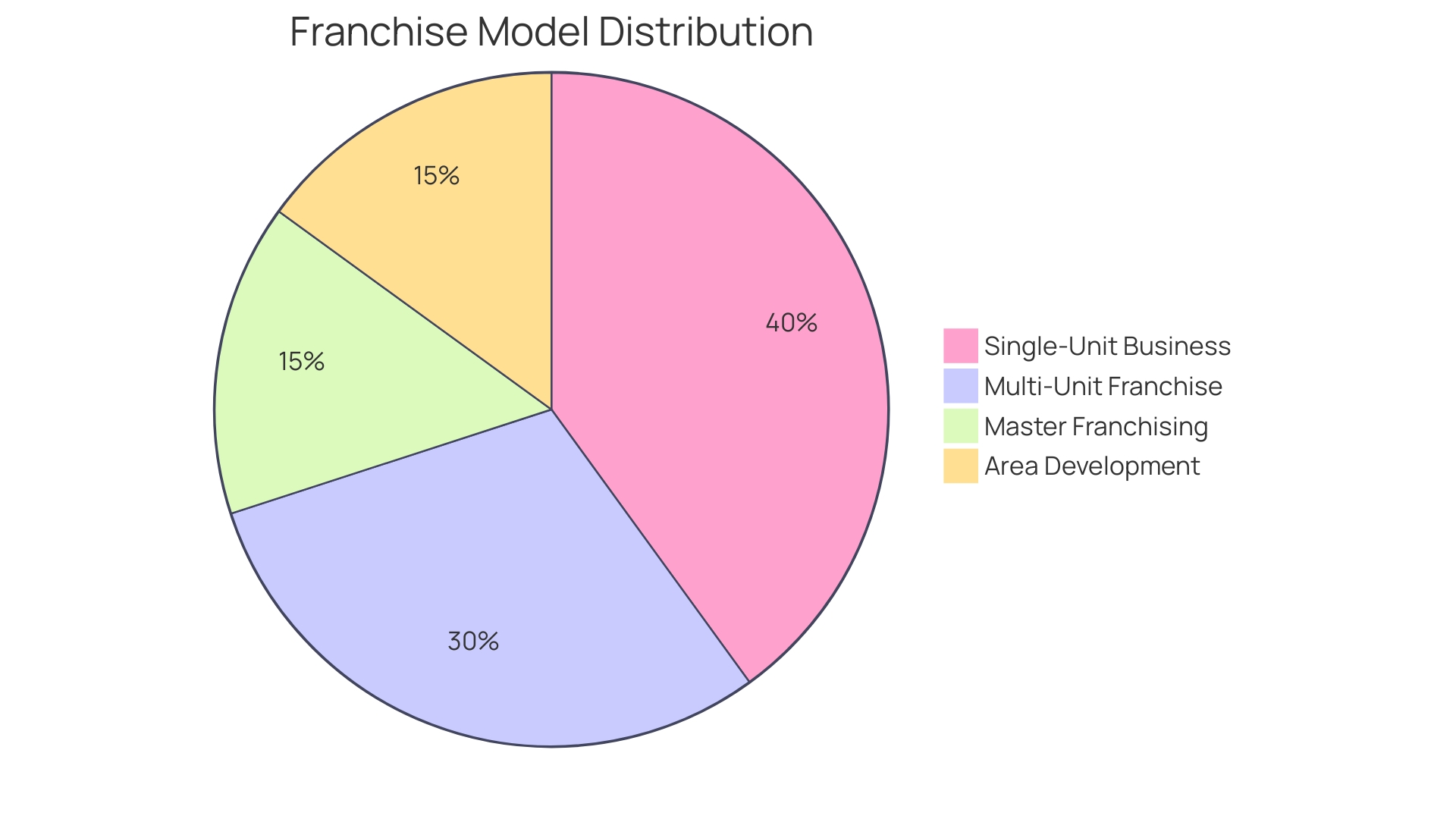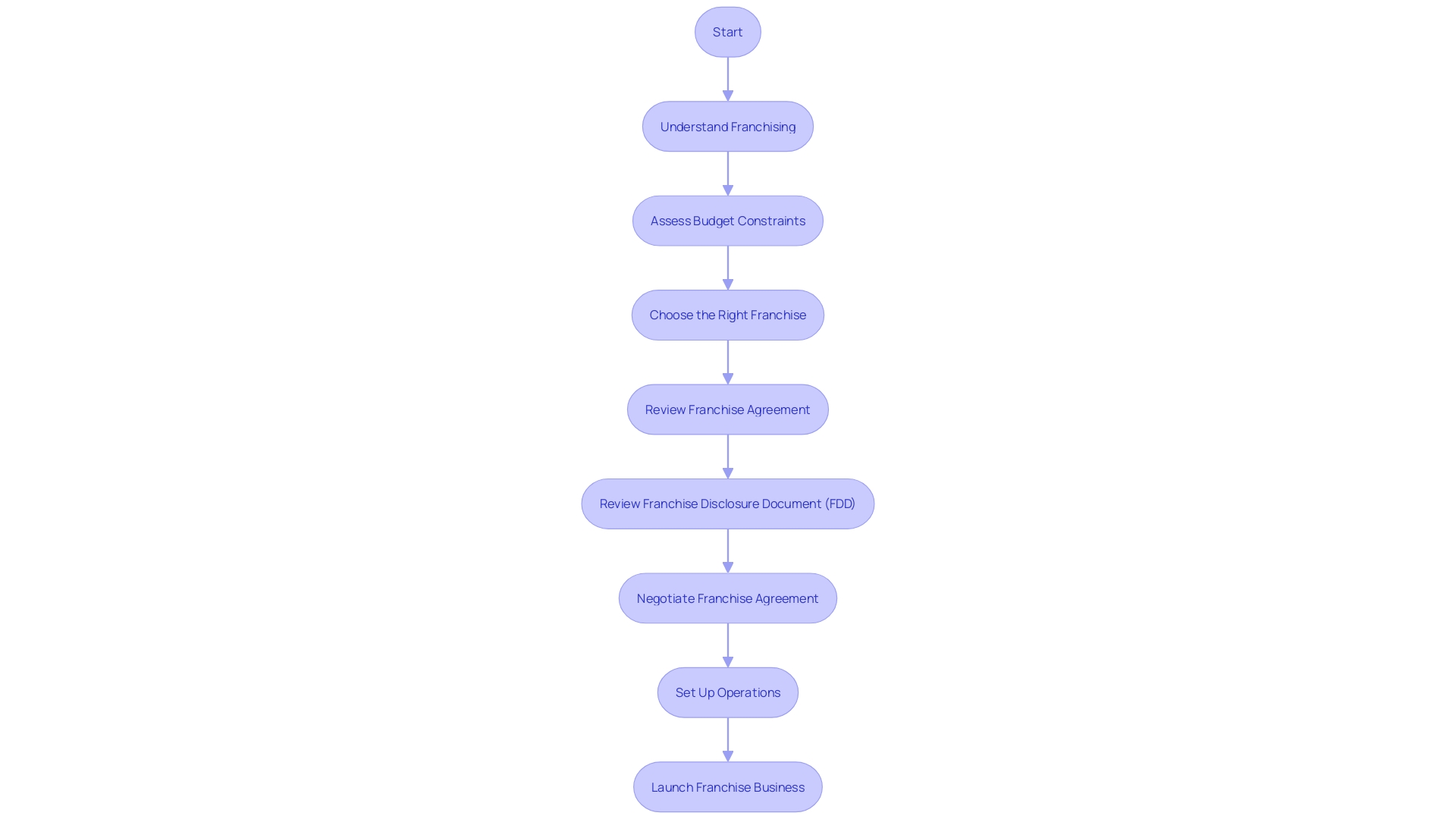Introduction
Franchising offers an enticing blend of support and established reputation for entrepreneurs looking to embark on the path of entrepreneurship. By gaining access to a franchisor’s trademark, operational strategies, and marketing techniques, franchisees can benefit from a proven business model while enjoying the perks of an established brand. However, navigating the franchise landscape can be complex, with factors such as startup costs, market demand, and personal skills playing a crucial role in determining success.
In this article, we will explore the key elements of a successful franchise, different types of franchise models, legal requirements, benefits, challenges, and considerations, as well as the top business franchises to consider. We aim to provide practical advice and guidance to career transitioners, offering valuable insights and solutions to the common challenges faced during franchise ventures. So, whether you’re considering franchising as a way to start your own business or seeking to expand your existing business through franchising, this article will equip you with the knowledge and tools necessary to make informed decisions and achieve your entrepreneurial goals.
Understanding the Franchise Business Model
Delving into the realm of entrepreneurship through franchising offers an enticing blend of support and established reputation. In essence, a franchise is an agreement where the franchisee gains access to the franchisor’s trademark, along with the accompanying operational and marketing strategies. This symbiotic relationship involves the franchisee’s dedication to follow the franchisor’s blueprint and pay certain fees, while benefiting from the parent company’s established brand and support systems.
Successful business operations, such as the widely recognized Marco’s Pizza, exemplify how adhering to a proven business model can facilitate a smoother entry into the entrepreneurial world. This is particularly evident in dynamic sectors like the pet industry, where businesses are expanding into specialized services, such as mobile pet grooming or eco-friendly product offerings, to cater to evolving consumer demands.
Recent news underscores the importance of transparency and education in franchising. The International Franchise Association is actively working to demystify the Franchise Disclosure Document (FDD), aiming for a more digestible format that clearly outlines startup costs and potential expenses. Such initiatives are crucial in empowering entrepreneurs to make well-informed decisions.
When assessing business opportunities, especially those with an initial investment of less than $20,000, it’s essential to take into account factors such as the company’s corporate culture, marketing support, and training programs. Aligning one’s personal skills and goals with the appropriate business opportunity can greatly impact client satisfaction and financial success.
One notable statistic reflecting the vibrancy of the franchising world is that 419 of the 500 companies on Entrepreneur’s 2024 Franchise 500 list began franchising in 1980 or later, signaling the industry’s capacity for innovation and adaptation.
In summary, franchising serves as a bridge for entrepreneurs to possess an enterprise, providing a structured pathway strengthened by the franchisor’s brand and operational expertise. Aspiring business owners are encouraged to conduct thorough self-assessments and research to identify the business opportunity that aligns best with their aspirations and capabilities.

Key Elements of a Successful Franchise
To manage a successful business, it’s crucial to explore a range of important elements. A strong brand presence serves as the foundation, setting the stage for a business’s success by resonating with consumers and fostering loyalty. Recognizing and comprehending the target market is just as crucial, as it guarantees that the business’s offerings align with the preferences and needs of its intended audience.
A well-established business model, proven over time, provides a blueprint for success, offering a structured approach to efficiently operating the business. Marketing and advertising strategies, customized to the brand’s identity and market, play a vital role in capturing attention and driving customer engagement. Assistance and instruction are the lifelines for business owners, providing them with the essential resources and expertise to navigate the business landscape confidently.
In the end, the success of the business depends on the commitment and motivation of the business owner. A dedication to delivering outstanding customer service and nurturing strong connections can result in repeat transactions, which is the foundation of any successful franchise. By concentrating on these elements, franchisees can position their enterprise for growth and sustainability in the competitive marketplace.

Types of Franchise Models
Franchise models are available in different forms and dimensions, each customized to diverse objectives and financial commitments. Single-unit businesses are a common entry point for many entrepreneurs, offering the opportunity to own and operate a single location with a lower initial investment. This model is ideal for individuals who prefer a hands-on approach to business ownership and are looking to immerse themselves in the day-to-day operations of their establishment.
For those who aspire to manage a larger operation, multi-unit franchises present an opportunity to operate several locations. This requires a more substantial investment but can potentially yield higher returns. With multiple units, business owners can leverage economies of scale, optimizing operational costs across all locations.
Master franchising takes the model a step further, allowing an individual or entity to possess the franchising rights within a specified territory. This option is akin to being a franchisor within a region, responsible for recruiting new franchisees, supporting them, and ensuring they adhere to brand standards.
Area development franchises are similar to master franchises but are typically focused on the development and management of multiple units within a particular area. This allows for strategic market penetration and brand establishment within a region.
When considering a business model, it’s crucial to evaluate startup costs, potential earnings, and the local market. The initial investment is a primary concern, especially for those looking to enter the business world with less capital, such as opportunities under $20,000. Potential business owners should ask for a document disclosing the details of the business model to analyze typical income and profit margins, while also taking into account competitors and customer preferences in the desired area.
The franchise industry has evolved significantly, with digital marketing taking center stage. Prospective franchisees should align with systems that complement their skills and offer robust support, such as marketing and communications training. Brands like Big O Tires and Tire Pros stand out by combining established names with comprehensive support, making them attractive low-cost retail business ideas.
Franchising provides a framework for success with the backing of a recognized brand, which is particularly valuable when starting out. With a move towards more transparent business disclosures, it’s becoming easier for entrepreneurs to find the right fit for their abilities, assets, and investment capacity. Remember, client satisfaction is key, and understanding the financial aspects such as annual gross revenue, net owner’s profit, and personal salary is essential for making an informed decision.

Steps to Start a Franchise
Starting a business endeavor necessitates a strategic approach that starts with comprehensive research. Dive into the world of franchising by exploring diverse options such as a certified organic juice bar that aligns with a health-conscious lifestyle or a family-friendly establishment like Dream Dinners, where cooking instructions are simple and community-oriented values are emphasized. Consider the unique concept and customer appeal of your chosen brand, as these are pivotal to success.
Next, assess the level of involvement you desire in your franchise. Whether it’s day-to-day management or overseeing multiple locations, your role should reflect your personal aspirations. Crafting a detailed business plan is imperative, guiding your journey from initial investment to long-term growth. It’s important to examine the financial aspects carefully, factoring in not only the initial business opportunity fee but also ongoing costs such as monthly fees, equipment, and marketing.
When choosing a business opportunity, especially within a modest budget like under $20,000, prioritize affordability and the potential for profitability. The disclosure document (FDD) will be a valuable resource, offering comprehensive details on costs and expenses. With recent scrutiny on FDDs, efforts are being made to simplify this information, making it more accessible to prospective franchisees. Take into consideration state regulations that govern business opportunities and sales, and make sure your selected business opportunity is available in your area.
Before making a commitment, it’s crucial to comprehend all aspects of the business model, from the original idea that ignited the brand’s triumph to the complexities of the industry, such as the fast-paced nature of fast food businesses or the competitive environment of real estate enterprises. By carefully evaluating these elements, you’ll be well-equipped to navigate the business landscape and make a decision that best suits your lifestyle and business goals.

Legal Requirements for Franchising
Starting a business opportunity requires a thorough comprehension of the legal environment, which encompasses a range of regulations and obligatory disclosures. Central to this is the Franchise Disclosure Document (FDD), a crucial resource for potential franchisees outlining the business opportunity’s essential details, including costs and expenses. The FDD, historically a voluminous and complex document, is under the scrutiny of bodies such as the International Franchise Association, which seeks to make this information more accessible and digestible, potentially through an executive summary that provides clear answers to key financial queries.
The franchise agreement itself is the cornerstone of the franchisor-franchisee relationship, granting the franchisee the right to utilize the franchisor’s intellectual property, systems, and brand. This agreement not only defines the rights and responsibilities of both parties but also safeguards the franchisee’s substantial financial investment. Understanding the full scope of this agreement, including operational requirements and fee structures, is vital as it often stipulates adherence to specific operational manuals and payment of ongoing fees.
‘Franchising, as a strategy, affords entrepreneurs the opportunity to manage their enterprises under the umbrella of an established company.’. This model offers the dual advantages of brand recognition and a proven framework, which are especially valuable in sectors like security and fast food, where trust, reliability, and speed of service are important factors for consumers.
Nevertheless, entering the franchising domain is not without its myths and misconceptions. One pervasive myth is that success is guaranteed within a franchise system; however, as industry veterans attest, it requires the same level of commitment, hard work, and dedication as any other endeavor.
With nearly 800,000 business establishments operating under a franchise model making a significant contribution to the U.S. economy and job market, the impact of the franchise industry is considerable. Yet, as the Federal Trade Commission and other entities take a closer look at the intricacies of the franchisor-franchisee dynamic, the industry faces a period of reflection and potential reform. Important considerations include the level of control franchisees have over crucial decisions and a deeper comprehension of the risks involved. As the conversation around industry regulations continues, franchise participants are encouraged to stay informed about the evolving landscape and engage with organizations like the IFA that advocate for their interests.

Benefits of Franchising
Franchising can be a beneficial venture for those looking to enter the corporate world with a bit of a head start. It provides a framework for operations, granting access to established brand recognition, which can be invaluable for attracting customers. Franchisees benefit from tried-and-tested systems and processes, helping to navigate the complexities of business operations smoothly. Moreover, the ongoing training and support from franchisors are fundamental for continual growth and adaptation.
The collaborative power of a franchise network should not be underestimated. It fosters an environment where individuals can leverage shared knowledge and experience. This community can be a source of advice and support, contributing positively to individual and collective success. Economies of scale are another perk, as individuals can benefit from collective buying power, reducing costs.
However, prospective franchisees must also consider the limitations and responsibilities that come with such an endeavor. It’s crucial to perform a comprehensive self-evaluation, matching personal capabilities, resources, and expertise with the requirements of the business opportunity. Understanding the financial aspects, such as annual gross revenue, net owner’s profit, and personal salary, is crucial to gauge potential success.
When choosing a business, especially with budget limitations, it’s important to evaluate opportunities that align with financial realities and personal goals. For those considering franchises with a price tag below $20,000, prioritizing initial capital and finding a franchise that aligns with one’s corporate culture and rewards expectations is crucial.
Franchise disclosures, which provide detailed information on costs and expenses, are critical resources for making an informed decision. As the industry evolves, efforts are being made to simplify these documents, making them more accessible and easy to understand for potential business partners.
In summary, while franchising presents a structured path with numerous benefits, it requires dedication, a willingness to adhere to the franchisor’s model, and a thorough understanding of the financial and operational commitments involved. Potential franchisees must thoroughly consider the benefits versus the necessary capital to guarantee a prosperous and fulfilling entrepreneurial endeavor.
Challenges and Considerations
Franchising offers aspiring entrepreneurs a unique blend of independence and support, providing the chance to operate a business backed by an established brand and its proven model. However, the journey is not without its hurdles, including financial commitments and operational constraints. Franchisees often face significant initial investment costs, as well as ongoing fees and royalties that can impact long-term profitability. The Franchise Disclosure Document (FDD), a crucial resource for potential franchisees, is currently undergoing scrutiny for its complexity. Efforts are underway to streamline this document to better serve prospective owners with clear, concise information on the financial aspects of owning a business.
Exploring the business landscape requires a customer-centric approach. Content customers are the foundation of a successful business, directly impacting returning customers and the overall triumph of the venture. This emphasis on customer service must be accompanied by a comprehensive comprehension of the business’s financial performance metrics, including yearly gross revenue and net owner’s profit.
It’s crucial for business owners to begin with a self-evaluation, matching their abilities and principles with a business model that aligns with their objectives. Understanding the culture, rewards, and support systems of different business models is crucial in making an informed decision. The International Franchise Association (IFA) champions this cause, offering education and advocacy to foster a thriving franchising community. Marking more than 6 decades, the IFA embodies an extensive network of close to 800,000 business enterprises, contributing to substantial economic productivity and sustaining millions of employment opportunities.
In the current dynamic franchising marketplace, potential franchisees must carefully consider the benefits and limitations of franchising. With almost 8.4 million direct jobs and approximately 3 percent of the GDP attributed to franchising, the industry’s influence on the economy is significant. Aspiring owners must consider the appeal of a tested operational plan versus the longing for independence and innovation, as they navigate their way in the realm of entrepreneurship.
Top Business Franchises to Consider
Investigating the terrain of American commercial enterprises, we delve into a variety of sectors ripe for entrepreneurial investment. From the busy fast-food industry, recognized for its fast service and consistent menus, to the health-conscious realm of juice bars and smoothie businesses, each sector offers distinct opportunities and established business models. For those with a passion for wellness, fitness business opportunities present a turnkey solution to enter the health and fitness market, complete with training and marketing support. Additionally, the evolving pet industry beckons with specialized niches such as mobile pet grooming and eco-friendly products.
The choice to put resources into a business opportunity includes assessing starting capital expenses, fees, and the support system given by the franchisor. When considering business opportunities under $20,000, affordability and a strong return on capital are crucial. In the fast-food domain, the profit margin on items like artisan donuts can be as high as 70%, illustrating the potential profitability of well-chosen business opportunities.
As the industry of franchising evolves, regulatory scrutiny, such as that by the FTC on disclosures, aims to simplify and clarify the investment process for prospective franchisees. This, combined with the rise of women-owned business models—constituting 41% of new franchises in the past two years—points to a dynamic and inclusive industry.
Whether your interest lies in the culinary arts, personal wellness, or innovative pet care, the business opportunity landscape offers a wealth of options. With careful consideration of factors such as brand reputation, market demand, and franchisee satisfaction, entrepreneurs can find a franchise that aligns with their goals and provides a pathway to success.
Conclusion
Franchising offers entrepreneurs the chance to start a business with the support of an established brand and proven business model. Key elements for success include a strong brand presence, understanding the target market, a well-established business model, effective marketing strategies, and ongoing support and training for franchisees.
Different franchise models cater to various business objectives and investment levels. Single-unit franchises are ideal for hands-on owners, while multi-unit franchises allow for operating multiple locations. Master franchises and area development franchises offer territorial rights and strategic market penetration.
Understanding the legal requirements is crucial, with the Franchise Disclosure Document (FDD) providing essential information on costs and expenses. Efforts are being made to simplify this document. The franchise agreement outlines rights and responsibilities, safeguarding franchisees’ investments.
Franchising offers benefits such as established brand recognition, proven systems, shared knowledge within a franchise network, and economies of scale. However, prospective franchisees must consider limitations and responsibilities.
Challenges include financial commitments, operational constraints, and the need for customer-centricity. Franchisees should conduct thorough self-assessments, prioritize affordability and profitability, and review franchise disclosures.
Top business franchises span various sectors, including fast food, health and wellness, fitness, and the pet industry. Factors such as initial investment costs, franchise fees, and franchisor support should be evaluated.
In summary, franchising provides a structured pathway to business ownership. Success requires dedication, adherence to the franchisor’s model, and understanding of financial and operational commitments. By carefully evaluating opportunities and aligning goals, entrepreneurs can embark on a successful franchise venture.
Explore the franchise models that cater to your business objectives and investment level.


